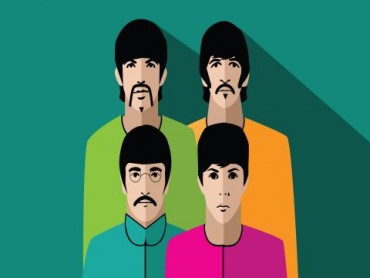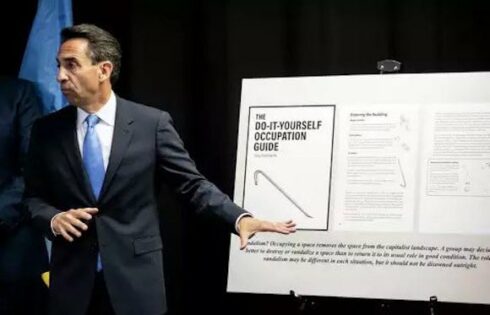
In an article from Monday, National Review Online’s Kat Timpf highlights a piece by Adam J. Rodriguez, a Puerto Rican psychology professor at Notre Dame de Namur University who claims — wait for it! — that a friend’s insistence that he appreciate the music of the Beatles is … a microaggression.
Sigh.
I told him that the [Beatles] songs seemed fine, I just did not really like them all that much. I did not debate their talent, I simply did not care for it. He was indignant. He pointed out that I did not care for Led Zepellin [sic], his other favorite band. He dismissed my lack of praise for the Beatles, and stated that it was only because I am a contrarian. He found it impossible that I would not love the Beatles, even if not as much as he does.
All cultures contain within them many subcultures, with one cultural dimension often dominant. When one is a member of the dominant culture, that person enjoys particular power and privileges, including the freedom to not have to consider other perspectives. My friend has enjoyed the privilege of not having to consider that there are people in the world that don’t have the same relationship to music, food, art, or culture that he does. He has the privilege of not being forced to consider perspectives that are not his own.
Rodriguez goes on to point out his pal’s “white middle-class male” upbringing, and that said pal’s “ethnocentric blindness” is what prevents him from acknowledging an appreciation of music tastes other than his own.
It may not surprise you that Rodriguez “has a specialty in working with individuals who identify as LGBTQ people of color, with emphasis on issues of power dynamics and identity.” I bring this up because only one versed in the academese and edu-jargon of racial/cultural/sexual/etc. identity could turn a friendly quarrel about musical tastes into a diatribe on the malevolence of white, Anglo-Saxon cultural supremacy.
This whole situation sounds very similar to that which exists between a good friend, myself, and a few other buddies.
My good friend (we’ll call him “Mark”) is an avid music collector, having amassed a prodigious stash of LPs, cassettes, and CDs over the last 35 years.
Once per year, Mark, myself and the others get together over a weekend. One of the ongoing jokes is that Mark consistently monopolizes the CD player, meaning that all we listen to is his choice of music.
Much of it is from the 60s and 70s, including, yes, the Beatles, as well as the Stones, Bob Dylan, Van Morrison, Springsteen, Clapton, et. al. (To be fair, all of us like at least some of his selections.)
 Now, I am a big fan of quite a few Spanish-language bands and singers, having lived in Costa Rica for a time. Among them are Los Amigos Invisibles (at left), Soda Stereo, Aleks Syntek, Los Enanitos Verdes, and Julieta Venegas. (Raise your hand if you’ve heard of any of them.)
Now, I am a big fan of quite a few Spanish-language bands and singers, having lived in Costa Rica for a time. Among them are Los Amigos Invisibles (at left), Soda Stereo, Aleks Syntek, Los Enanitos Verdes, and Julieta Venegas. (Raise your hand if you’ve heard of any of them.)
My music choices never get near the CD player. “We wouldn’t understand it!” I’m told.
In addition, with the exception of just one other among us, I’m the only musician in our little confab. I played sax in my high school and college jazz bands, as well as in a (college-era) band where we composed our own tunes from among many genres. I also had taken classes in music theory in high school and college.
You might think with that background my opinions and preferences would get just a little more deference, right?
Nope.
And you know what? I couldn’t care less. Because I, like others with no silly axe to grind, recognize that musical tastes are just like opinions and posteriors: Everybody’s got one.
Reason’s Nick Gillespie nails it:
What bothers me ultimately in all this is the sheer banality and humorlessness of Rodriguez’s complaint, the hypersensitivity to real and imagined slights, especially at a time when the most serious and punishing forms of racism and cultural insensitivity have mostly been vanquished from everyday society.
So yeah, I could yammer like Rodriguez (I know, I know, even though my pals and I are members of the “dominant” group) at every one of these gatherings, clamoring about (as the professor says) “feeling excluded” and “less than,” and verbally meandering about the so-called “paradigms of normality.”
But … turn mere variations of musical preference into an invective on social justice? Give me a break.
Like The College Fix on Facebook / Follow us on Twitter
IMAGES: Michele Paccione/Shutterstock.com; espelina/Flickr







Please join the conversation about our stories on Facebook, Twitter, Instagram, Reddit, MeWe, Rumble, Gab, Minds and Gettr.